BREAKTHROUGHS THAT BRING NEW HOPE
Together, we’re transforming the lives of cancer patients through groundbreaking research
Every day, we bring people together to push boundaries, ask bold questions, and chase answers hidden deep within our cells.
It’s early discoveries and innovative clinical trials. It’s breaking down silos and charting new paths forward. It’s changing how we understand, diagnose, and treat cancers while giving a voice to the patients, families, and researchers who inspire us – just like Terry – to never give up.
OUR MISSION IS CLEAR
Thanks to funding from the Terry Fox Foundation and other partners, the Terry Fox Research Institute invests in highly-collaborative, world-class scientific teams that drive research discoveries to improve and save the lives of cancer patients. Together, we’re determined to finish the marathon against cancer that Terry started 45 years ago.
Today, our research portfolio includes three major initiatives to improve the lives of cancer patients through basic science, translational research, and precision medicine:
UNITING CANADA
TO CONQUER CANCER
Our work unites patients, researchers, clinicians, and administrators to search for new ways to tackle the hundreds of diseases we call cancer. This collaborative approach to cancer research is making an impact in Canada and beyond.
UNDERSTANDING OUR RESEARCH PORTFOLIO 2024/2025
INVESTMENT PER PROGRAM
| Programs | Investment | Projects | Researchers | Partners |
|---|---|---|---|---|
| TFRI Research Grants Programs | $22M | 57 | 289 | 49 |
| Marathon of Hope Cancer Centres Network | $37.5M | 160 | 372 | 140 |
| Digital Health and Discovery Platform | $1.1M | 2 | 5 | 60 |
| TOTAL | $60.6M* | 218 | 604** | 202*** |
*This amount reflects our direct investment in research and does not include the costs of operating TFRI’s programs and projects. TFRI’s total expenses in the 2024-25 fiscal year were $63,392,842.
**A number of researchers work on several projects across program types. While these individuals are counted in more than one program type, the total number displayed at the bottom reflects the individual number of researchers we fund: 604.
***Many of our research and partner institutions are part of more than one of our initiatives. While these partners may be counted in more than one program, the total number displayed reflects the individual number of partner institutions.
*This amount reflects our direct investment in research and does not include the costs of operating TFRI’s programs and projects. TFRI’s total expenses in the 2024-25 fiscal year were $63,392,842.
**A number of researchers work on several projects across program types. While these individuals are counted in more than one program type, the total number displayed at the bottom reflects the individual number of researchers we fund: 604.
***Many of our research and partner institutions are part of more than one of our initiatives. While these partners may be counted in more than one program, the total number displayed reflects the individual number of partner institutions.
COMBINED INVESTMENT PER REGION
BC
- $14.5M Invested
- 55 Projects*
- 122 Researchers
- 22 Partners
Quebec
- $11.2M Invested
- 80 Projects*
- 153 Researchers
- 46 Partners
Prairies
- $3.9M Invested
- 33 Projects*
- 71 Researchers
- 23 Partners
Atlantic
- $4.4M Invested
- 30 Projects*
- 34 Researchers
- 22 Partners
Ontario
- $26.6M Invested
- 97 Projects*
- 223 Researchers
- 52 Partners
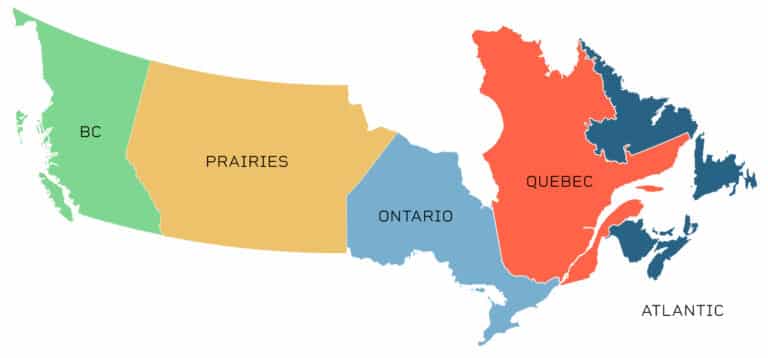
*A number of our projects are multi-provincial in nature and their research is conducted in more than one region. Thus, project totals shown here should not be added up, as their sum will equal more than 218, which is the total number of projects we fund.
*A number of our projects are multi-provincial in nature and their research is conducted in more than one region. Thus, project totals shown here should not be added up, as their sum will equal more than 218, which is the total number of projects we fund.
ALL PROGRAMS: YEAR-TO-YEAR COMPARISON
| YEAR | Investment | Projects | Researchers | Partners |
|---|---|---|---|---|
| 2024-2025 | $60.6M | 218 | 604 | 202 |
| 2023-2024 | $43.9M | 176 | 595 | 175 |
| 2022-2023 | $28.3M | 97 | 352 | 124 |

Terry Fox Research grants Programs

TERRY FOX RESEARCH GRANTS PROGRAMS

UP FOR THE CHALLENGE
TFRI’s Research Grants Programs bring together top researchers from across the country to take on some of cancer’s toughest challenges.
One example of this cross-country collaboration is our nationwide team of scientists stretching from Victoria to Halifax. They’ve joined forces to study the immune system and find more effective ways to treat high-grade serous ovarian cancer (the most common form of ovarian cancer). Building on earlier Terry Fox-funded discoveries, they’re combining their expertise and working closely with patients to turn leading-edge research into real therapies.
“The Terry Fox Research Institute is one of the few funding agencies in the country that provides team grants, investing millions of dollars in collaborative efforts. Our team is honoured to receive such a prestigious and transformative grant from a Canadian leader and long-time supporter of peer-reviewed, innovative cancer research.”
–Dr. Brad Nelson, Terry Fox New Frontiers Program Project Grant Lead

Marathon of Hope cancer centres network

Marathon of Hope cancer centres network
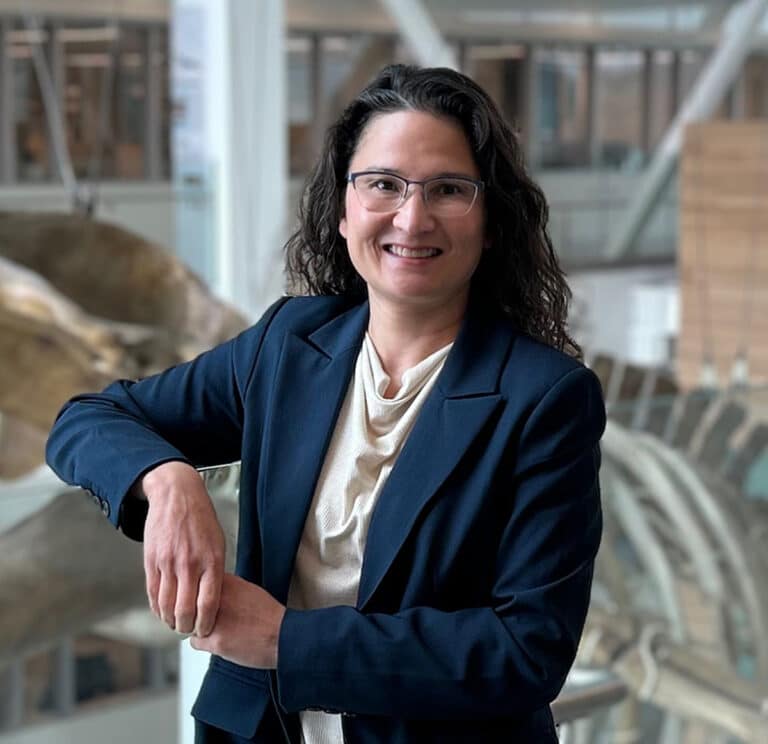
A NATIONAL STRATEGY TO BRING PRECISION ONCOLOGY TO ALL CANADIANS
The Marathon of Hope Cancer Centres Network is a bold initiative inspired by Terry and led by the Research Institute and the Foundation. Launched in 2021, it represents an unprecedented collaboration for the benefit of cancer patients. Today, the Network includes over 40 member institutions, 100 research and funding partners and 1,200 individuals from across the country, who are working together to create a national strategy so every cancer patient in Canada – no matter where they live – will one day receive personalized cancer treatments tailored to the genetic makeup of their cancer.
“The Marathon of Hope Cancer Centres Network has had a transformative effect on the cancer research community in Canada. People now want to collaborate more than compete, and the success of one member is recognized as the success of the entire Network. Terry Fox’s legacy is uniting us and helping us build a new culture of cancer research and care.”
–Dr. Sherri Christian, Professor, Memorial University of Newfoundland; Atlantic Cancer Consortium co-lead


Digital health and discovery Platform

Digital health and discovery Platform

MADE-IN-CANADA TECHNOLOGY TO ACCELERATE PRECISION MEDICINE
Making precision medicine a reality requires vast amounts of data – more than any single institution in Canada can generate. When it comes to cancer, the Marathon of Hope Cancer Centres Network is helping to create this data and is using it to pursue transformative research. How is this data shared and analyzed? That’s where development of the Digital Health and Discovery Platform (DHDP) comes in.
Led by the Research Institute, the DHDP is a pan-Canadian solution for data sharing and analysis to accelerate precision medicine research. Once running, it will provide a state-of-the-art virtual platform for researchers, bioinformaticians, doctors, and industry experts to safely share, access, and analyze data from patient populations across the country. This was simply not possible until now.
“In an era where we often hear troubling stories about AI and data breaches, it’s reassuring to see a thoughtful approach to data access that is centred around patient privacy. Canadians with cancer and other diseases will benefit greatly from this approach led by the Digital Health and Discovery Platform.”
–James Pereira, Patient Partner, DHDP and Marathon of Hope Cancer Centres Network Patient Working Group Member
DISCOVERIES THAT CHANGE LIVES
If you ask any of our researchers why they spend their lives tackling something as complex as cancer, they’ll all give a similar answer: to make discoveries that improve the lives of cancer patients.
Today, the Terry Fox Research Institute supports outstanding science across the research spectrum. This ranges from teams looking at the fundamental biology of cancer cells to help us better understand why cancer behaves the way it does, to clinical trials testing new drugs and procedures, to studies seeking to improve quality of life for long-term cancer survivors. All of this research directly affects the lives of cancer patients across Canada.
If you ask any of our researchers why they spend their lives tackling something as complex as cancer, they’ll all give a similar answer: to make discoveries that improve the lives of cancer patients.
Today, the Terry Fox Research Institute supports outstanding science across the research spectrum. This ranges from teams looking at the fundamental biology of cancer cells to help us better understand why cancer behaves the way it does, to clinical trials testing new drugs and procedures, to studies seeking to improve quality of life for long-term cancer survivors. All of this research directly affects the lives of cancer patients across Canada.
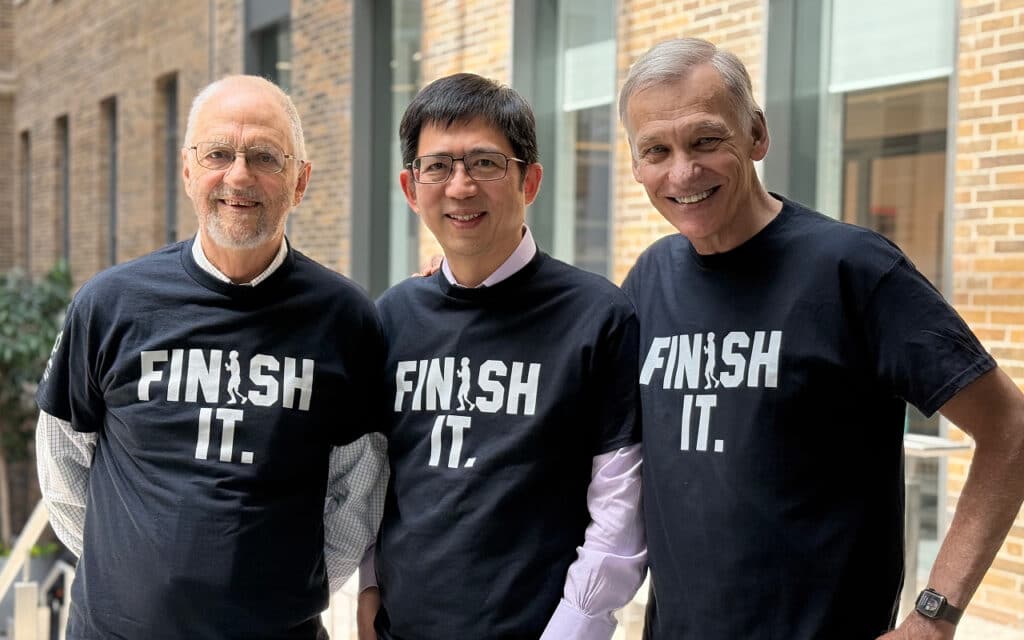
FROM BENCH TO BEDSIDE
A team of Toronto researchers is bringing a groundbreaking discovery closer to helping patients with more precise, less invasive cancer treatments. Their light-activated nanoparticles, called porphysomes, can detect, illuminate, and destroy cancer cells. And after more than a decade of support from TFRI, the team has Health Canada approval for in-human clinical trials. Building on this success, the team is studying how porphysomes (combined with other therapies) can stimulate the body’s immune response to fight cancer and potentially limit its spread.
This bench-to-bedside journey is a shining example of what teams can achieve with scientific collaboration and sustained investment in research. Special thanks to the Lotte & John Memorial Hecht Foundation for their significant support of this work over the years.

PRECISION ONCOLOGY IN ACTION
Summer Konechny and Terry Fox have a lot in common. Both were diagnosed with osteosarcoma as young adults and underwent chemotherapy and surgery to treat their cancer. Unlike Terry, Summer’s leg was spared thanks to advances in cancer research. And because of funding from the Network, her oncology team has another option to treat her cancer if it returns: genomic sequencing.
“Having my genome sequenced – thanks to Network funding – opened up more data for informed decision making about my health in the future and has provided me with a deep sense of peace surrounding my long-term survival.”
–Summer Konechny
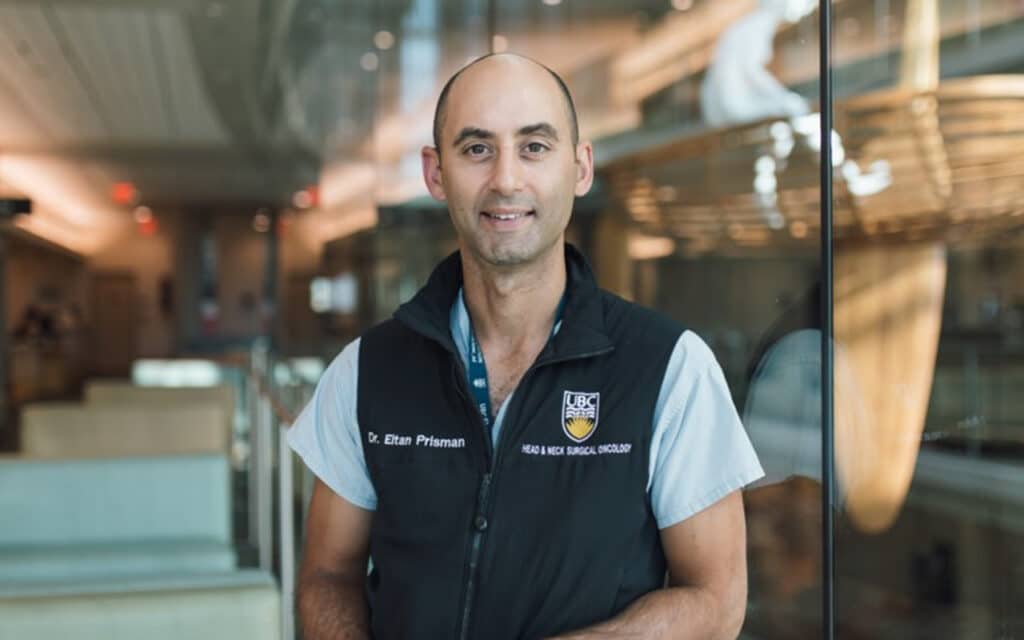
PERSONALIZING TREATMENT FOR PATIENTS WITH ORAL CANCER
Each year, 5,000 Canadians are diagnosed with oral cancer. Many require aggressive surgeries that affect their ability to speak, chew, and swallow. But thanks to donor support, a team of surgeons, engineers, and radiologists is developing tools to improve jawbone reconstruction surgery. Their work includes refining the use of 3D-printed surgical guides to make them more accurate and affordable. They will also launch a nationwide clinical trial to test these innovations and build a virtual platform to connect health professionals and share best practices in treating oral cancers.

LIVING LONGER - AND BETTER - WITH ADVANCED CANCER
Advances in cancer research and care are helping cancer patients live longer lives. But sadly, living longer doesn’t always mean living better. To change this, researchers from Nova Scotia, New Brunswick, and Newfoundland are exploring the unique challenges faced by individuals living long-term with advanced cancers, persistent symptoms, and uncertain prognoses. By gathering insights directly from patients, the team is co-designing tools, resources, and programs to improve quality of life for this growing patient group.
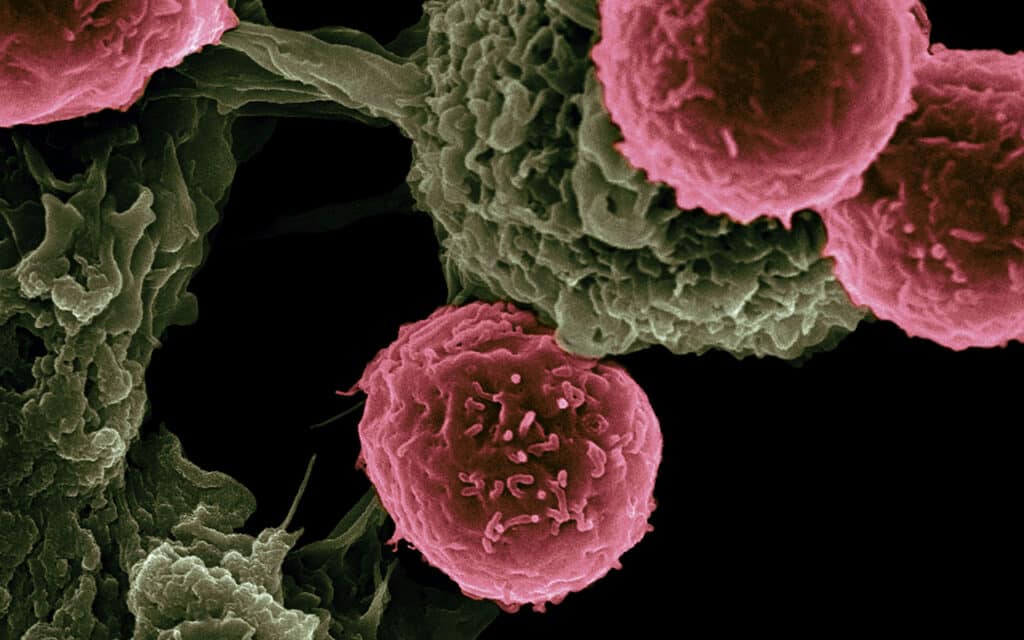
DATA SHARING FOR PRECISION IMMUNOTHERAPY
Immunotherapy harnesses the power of the immune system to fight cancer. But it doesn’t work for everyone. And when it doesn’t, the costs and side effects can be significant. That’s why researchers are searching for predictive biomarkers: telltale signs in a patient’s tumour or genome that can indicate whether a specific immunotherapy is likely to work. These biomarkers are key to making cancer treatment more precise, more personal, and more effective.
When completed, the Digital Health and Discovery Platform (DHDP) will provide technological tools to help accelerate the search for these biomarkers. With secure sharing and analyses of massive datasets (like those generated through the Marathon of Hope Cancer Centres Network), the DHDP will help scientists in all walks of life uncover links between tumour biology, immune response, and treatment success. The goal? To give clinicians the tools they need to match the right treatment to the right patient. And to give more Canadians a better chance at recovery.
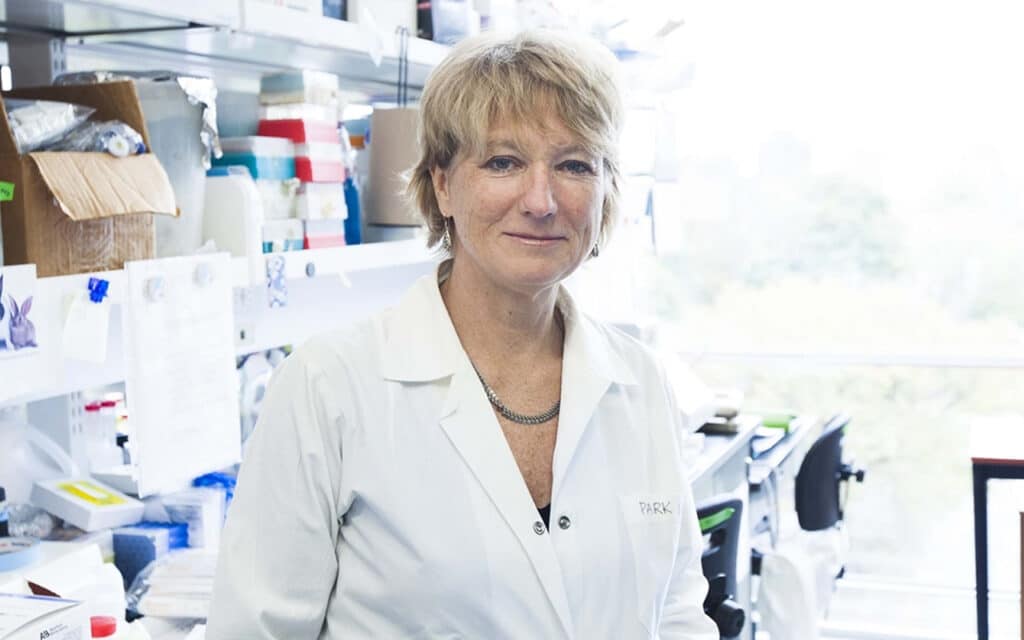
BRINGING NEW HOPE TO PATIENTS WITH RARE CANCERS
A cancer is considered rare when it affects fewer than 6 in 100,000 people. But when taken as a whole, these cancers are not rare at all. Every year, they make up 20% of all diagnoses and 25% of all cancer-related deaths in Canada. Yet despite their collective prevalence and mortality, we understand very little about most individual rare cancers. The Marathon of Hope Cancer Centres Network supports multidisciplinary teams of experts who are working together to share data, resources, and knowledge to improve outcomes for patients with rare cancers in Canada.
“No single cancer centre has enough data – or enough patients – to have a big impact on research and care for people with rare cancers. But by generating and sharing high-quality clinical and genomic data collected at centres across the country, we can make discoveries that will impact the lives of cancer patients now and into the future.”
–Dr. Morag Park, Rosalind and Morris Goodman Cancer Institute, QC, metaplastic breast cancer team lead
A team of Toronto researchers is bringing a groundbreaking discovery closer to helping patients with more precise, less invasive cancer treatments. Their light-activated nanoparticles, called porphysomes, can detect, illuminate, and destroy cancer cells. And after more than a decade of support from TFRI, the team has Health Canada approval for in-human clinical trials. Building on this success, the team is studying how porphysomes (combined with other therapies) can stimulate the body’s immune response to fight cancer and potentially limit its spread.
This bench-to-bedside journey is a shining example of what teams can achieve with scientific collaboration and sustained investment in research. Special thanks to the Lotte & John Memorial Hecht Foundation for their significant support of this work over the years.
Summer Konechny and Terry Fox have a lot in common. Both were diagnosed with osteosarcoma as young adults and underwent chemotherapy and surgery to treat their cancer. Unlike Terry, Summer’s leg was spared thanks to advances in cancer research. And because of funding from the Network, her oncology team has another option to treat her cancer if it returns: genomic sequencing.
“Having my genome sequenced – thanks to Network funding – opened up more data for informed decision making about my health in the future and has provided me with a deep sense of peace surrounding my long-term survival.”
–Summer Konechny
Each year, 5,000 Canadians are diagnosed with oral cancer. Many require aggressive surgeries that affect their ability to speak, chew, and swallow. But thanks to donor support, a team of surgeons, engineers, and radiologists is developing tools to improve jawbone reconstruction surgery. Their work includes refining the use of 3D-printed surgical guides to make them more accurate and affordable. They will also launch a nationwide clinical trial to test these innovations and build a virtual platform to connect health professionals and share best practices in treating oral cancers.
Advances in cancer research and care are helping cancer patients live longer lives. But sadly, living longer doesn’t always mean living better. To change this, researchers from Nova Scotia, New Brunswick, and Newfoundland are exploring the unique challenges faced by individuals living long-term with advanced cancers, persistent symptoms, and uncertain prognoses. By gathering insights directly from patients, the team is co-designing tools, resources, and programs to improve quality of life for this growing patient group.
Immunotherapy harnesses the power of the immune system to fight cancer. But it doesn’t work for everyone. And when it doesn’t, the costs and side effects can be significant. That’s why researchers are searching for predictive biomarkers: telltale signs in a patient’s tumour or genome that can indicate whether a specific immunotherapy is likely to work. These biomarkers are key to making cancer treatment more precise, more personal, and more effective.
When completed, the Digital Health and Discovery Platform (DHDP) will provide technological tools to help accelerate the search for these biomarkers. With secure sharing and analyses of massive datasets (like those generated through the Marathon of Hope Cancer Centres Network), the DHDP will help scientists in all walks of life uncover links between tumour biology, immune response, and treatment success. The goal? To give clinicians the tools they need to match the right treatment to the right patient. And to give more Canadians a better chance at recovery.
A cancer is considered rare when it affects fewer than 6 in 100,000 people. But when taken as a whole, these cancers are not rare at all. Every year, they make up 20% of all diagnoses and 25% of all cancer-related deaths in Canada. Yet despite their collective prevalence and mortality, we understand very little about most individual rare cancers. The Marathon of Hope Cancer Centres Network supports multidisciplinary teams of experts who are working together to share data, resources, and knowledge to improve outcomes for patients with rare cancers in Canada.
“No single cancer centre has enough data – or enough patients – to have a big impact on research and care for people with rare cancers. But by generating and sharing high-quality clinical and genomic data collected at centres across the country, we can make discoveries that will impact the lives of cancer patients now and into the future.”
–Dr. Morag Park, Rosalind and Morris Goodman Cancer Institute, QC, metaplastic breast cancer team lead
PUSHING BOUNDARIES
ADVANCING HOPE
Terry believed “anything is possible if you try.” We honour that spirit by backing bold ideas with the potential to transform cancer care. We support innovative research from breakthrough treatments and early detection tools to patient-led projects and innovative technologies like AI.

USING AI TO CONNECT PATIENTS WITH CLINICAL TRIALS
Participating in clinical trials can improve survival rates for cancer patients. Yet less than 6% of newly diagnosed adult cancer patients in Canada participate in them. To change this, a new software suite created by Marathon of Hope Cancer Centres Network researchers will leverage genomic data and the power of AI to connect patients with clinical trials they may be eligible for across the country.
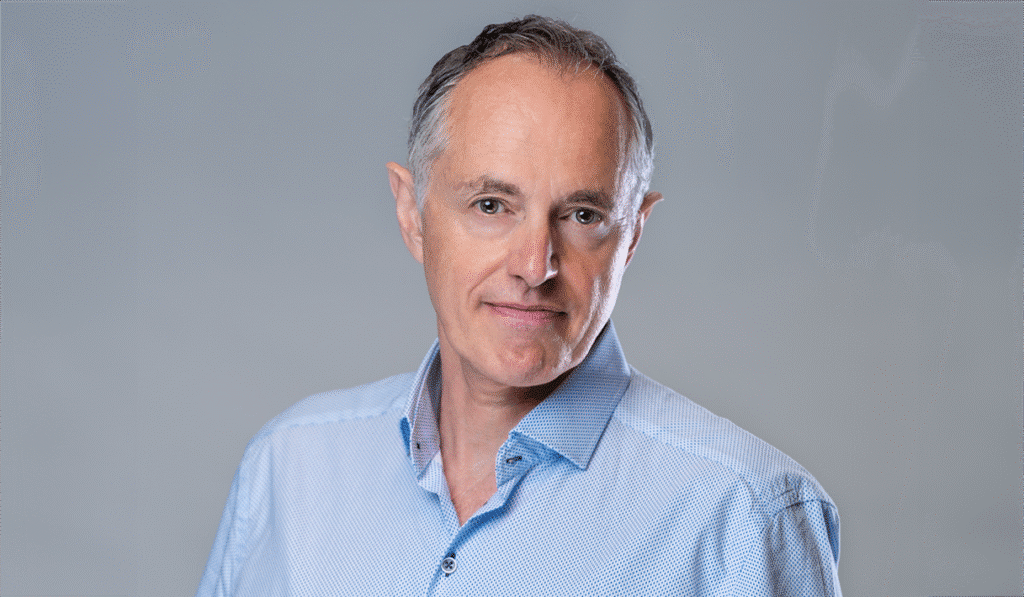
PREVENTING THE SPREAD OF CHILDHOOD BONE CANCER
In a breakthrough that brings new hope to children and youth with osteosarcoma (the same cancer that Terry had), researchers have discovered a promising drug that significantly reduces the spread of this aggressive disease. Building on work supported by TFRI, pre-clinical results show the drug disables the cancer cells’ defences. This limits its ability to spread and survive in the lungs. A clinical-grade version of the drug is already showing promise in trials for other conditions. The team is now aiming to advance this discovery into clinical trials and bring the new treatment to young patients.

DATA SECURITY = PATIENT SECURITY
When it comes to patient data, privacy isn’t optional: it’s essential. That’s why the Digital Health and Discovery Platform (DHDP) will apply federated learning: an exciting new approach that allows researchers to train powerful AI models and analyze clinical data without it ever leaving its place of origin.
How does it work? Instead of pulling data into a central location, the DHDP will allow researchers to explore and query information across institutions. The data itself will stay securely in place, under the control of its original owner. Not only is this approach secure and efficient, it’s a game-changer for pan-Canadian collaboration.
The federated learning approach was modelled at the Research Institute’s 10th Scientific Meeting. Researchers got a behind-the-scenes look at how the DHDP will support precision oncology while safeguarding sensitive information to make it easier and safer to turn patient data into life-saving discoveries.
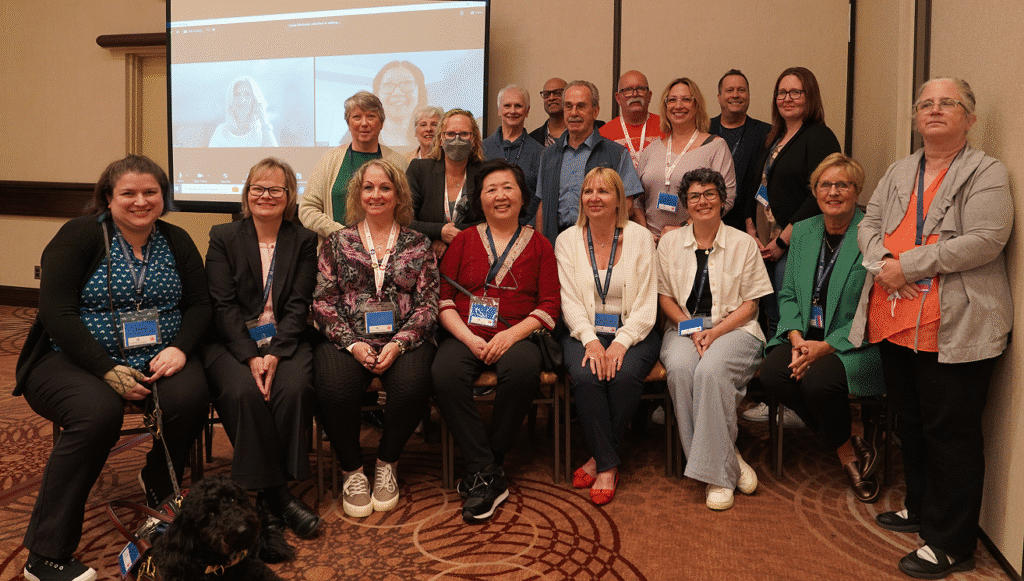
A CANADIAN FIRST
Last year, we set out to discover what happens when cancer patients work together with scientists to direct nearly $2M to help top research teams address gaps in precision oncology. The result? The Patient Voices in Research initiative is a first-of-its-kind research program created for patient by patients. The program is currently funding 10 top-tier scientific teams exploring ways to improve outcomes and quality of life.
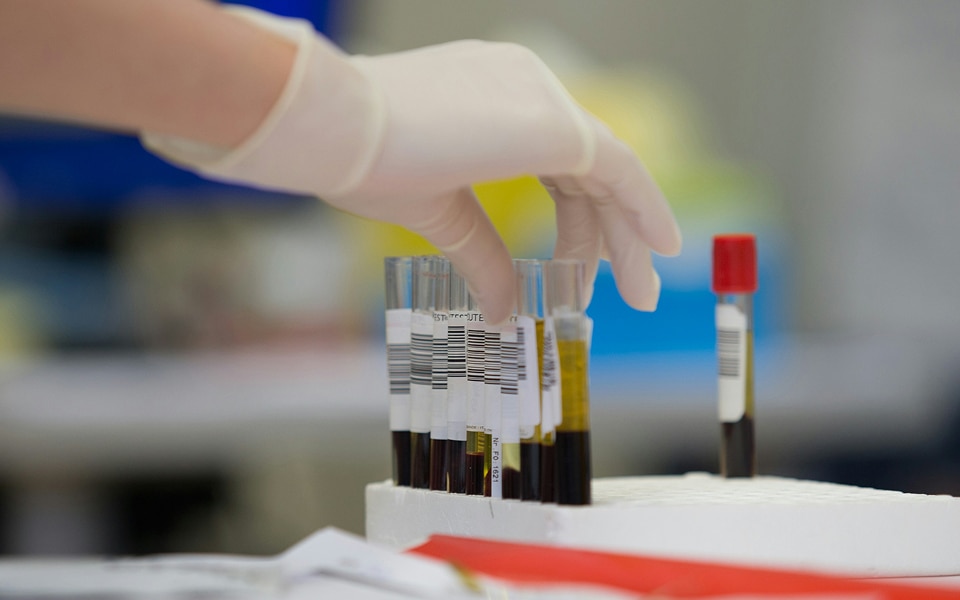
PREDICTING CANCER BEFORE IT STARTS
With support from a 2024 Terry Fox New Investigator Award, Dr. Sushant Kumar is pioneering a bold approach to predict and detect cancer early. Using genome sequencing, he’s developing tools to identify people at high risk for hereditary and aging-related cancers. His work aims to shift cancer care from reacting after diagnosis to spotting cancer earlier – through non-invasive liquid biopsies. The approach could help physicians diagnose and begin treating cancers even before symptoms appear. This has the potential to dramatically improve early detection, patient survival, and quality of life while easing the burden of late-stage cancer care.

ACCELERATING PRECISION ONCOLOGY BY BUILDING NEW TECHNOLOGY
Creating disruptive technology like the DHDP is complex. It involves working closely with health researchers, data scientists, engineers, and industry partners from across the country to re-imagine everything from engineering and user experience to privacy and quality controls.
In March 2025, we completed the Platform’s basic infrastructure, known in the tech world as a Minimum Viable Product. We then launched the $25-million Digital Health Innovation Fund, calling on Canadian innovators from public and private sectors, academia and industry to help build and test this national Platform to make it the best resource possible. The response to the call was overwhelmingly positive, showcasing both the need and the excitement for this burgeoning technology.
Participating in clinical trials can improve survival rates for cancer patients. Yet less than 6% of newly diagnosed adult cancer patients in Canada participate in them. To change this, a new software suite created by Marathon of Hope Cancer Centres Network researchers will leverage genomic data and the power of AI to connect patients with clinical trials they may be eligible for across the country.
In a breakthrough that brings new hope to children and youth with osteosarcoma (the same cancer that Terry had), researchers have discovered a promising drug that significantly reduces the spread of this aggressive disease. Building on work supported by TFRI, pre-clinical results show the drug disables the cancer cells’ defences. This limits its ability to spread and survive in the lungs. A clinical-grade version of the drug is already showing promise in trials for other conditions. The team is now aiming to advance this discovery into clinical trials and bring the new treatment to young patients.
When it comes to patient data, privacy isn’t optional: it’s essential. That’s why the Digital Health and Discovery Platform (DHDP) will apply federated learning: an exciting new approach that allows researchers to train powerful AI models and analyze clinical data without it ever leaving its place of origin.
How does it work? Instead of pulling data into a central location, the DHDP will allow researchers to explore and query information across institutions. The data itself will stay securely in place, under the control of its original owner. Not only is this approach secure and efficient, it’s a game-changer for pan-Canadian collaboration.
The federated learning approach was modelled at the Research Institute’s 10th Scientific Meeting. Researchers got a behind-the-scenes look at how the DHDP will support precision oncology while safeguarding sensitive information to make it easier and safer to turn patient data into life-saving discoveries.
Last year, we set out to discover what happens when cancer patients work together with scientists to direct nearly $2M to help top research teams address gaps in precision oncology. The result? The Patient Voices in Research initiative is a first-of-its-kind research program created for patient by patients. The program is currently funding 10 top-tier scientific teams exploring ways to improve outcomes and quality of life.
With support from a 2024 Terry Fox New Investigator Award, Dr. Sushant Kumar is pioneering a bold approach to predict and detect cancer early. Using genome sequencing, he’s developing tools to identify people at high risk for hereditary and aging-related cancers. His work aims to shift cancer care from reacting after diagnosis to spotting cancer earlier – through non-invasive liquid biopsies. The approach could help physicians diagnose and begin treating cancers even before symptoms appear. This has the potential to dramatically improve early detection, patient survival, and quality of life while easing the burden of late-stage cancer care.
Creating disruptive technology like the DHDP is complex. It involves working closely with health researchers, data scientists, engineers, and industry partners from across the country to re-imagine everything from engineering and user experience to privacy and quality controls.
In March 2025, we completed the Platform’s basic infrastructure, known in the tech world as a Minimum Viable Product. We then launched the $25-million Digital Health Innovation Fund, calling on Canadian innovators from public and private sectors, academia and industry to help build and test this national Platform to make it the best resource possible. The response to the call was overwhelmingly positive, showcasing both the need and the excitement for this burgeoning technology.
YOUR SUPPORT IN ACTION
When you fundraise, participate, donate, and volunteer, you support ambitious research with the potential to significantly improve outcomes for cancer patients.

